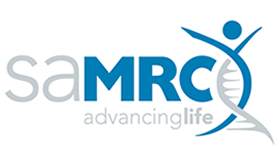Understanding Violence against Women and Girls with Disabilities
- NEWS
South Africa | A project by the South African Medical Research Council (SAMRC) has compiled evidence on the type of violence, risk factors and potential solutions to reduce violence against women and girls with disabilities. The collaborative project between the SAMRC, the Botswana Council for the Disabled (BCD) and the Institute of Development Management (IDM) is titled ALIGHT Botswana and is the first project that has enabled women with disabilities to co-lead research concerning them.
Globally, people with disabilities have significantly increased odds of experiencing violence when compared to people without disabilities. Women and girls with disabilities are at an even greater risk of gender-based violence (GBV) as they experience a two-fold discrimination based on their gender as well as their disability. The combination of gender inequality, disability exclusion, and endemic violence creates a toxic cocktail which negatively affects the health and wellbeing of women with disabilities, leading to injuries, negative sexual and reproductive health outcomes, further disabilities, and mental health disorders.
At the onset of the ALIGHT Botswana project no empirical evidence existed to understand the exposure of women and girls with disabilities to violence in Botswana. However, ALIGHT Botswana is now filling this gap and providing important pointers for the government, NGOs and Disabeld Peoples Organisations (DPO) to understand and respond to violence against women and girls with disabilities. The data retrieved from the field indicates that women and girls with disabilities are exposed to all forms of violence, particularly emotional and sexual violence. The context in which this violence occurs is shaped by negative internalized beliefs and practices, harmful socio-cultural norms and beliefs, lack of access to public and private resources and a lack of disability inclusion in current policies and strategic programmes concerning violence, HIV and health.
“Botswana has significant gaps in disability data as well as policies and programmes, which lack protection of the rights of people with disabilities and do not respond to the increased risk of violence among women and girls with disabilities,” says Principal Investigator and Specialist Scientist at the SAMRC’s HIV Prevention Research Unit Prof. Jill Hanass-Hancock
The project recognises that, without evidence and voice, women and girls with disabilities are left behind in the response to GBV and other forms of violence in Botswana and are therefore commonly forgotten or invisible in violence prevention strategies or interventions.
“Socially we see disability as inability,” says IDM and ALIGHT researcher Tshiamo Keakabetse. “This makes women and girls with disabilities particularly vulnerable as they experience
discrimination based on gender and disability. They are often excluded and hidden and as a result do not understand their rights, have low self-esteem, are despised by society and considered easy victims by perpetrators of violence. In addition, our justice system fails to accommodate their needs, hence perpetrator of violence against them are seldom held accountable.”
Director of the Botswana Council for the Disabled Sekgabo Ramsay says that the project is important for the DPOs community as it enables a focus on women and girls with disabilities, assists in gathering crucial evidence on risk factors of violence and an understanding of how the DPO community can promote the participation of women and girls with disabilities in the existing programmes. “We challenge the public to share their opinion on how they can reduce violence against women and girls with disabilities in Botswana,” she adds.
“Being part of the research team and leading the fieldwork was an empowering experience for me. I learnt about the different life experiences and risk factors of violence against disabled women like me. I also experienced challenges during the fieldwork. In order to access facilities of our partnering NGOs and DPOs I had to be lifted from my wheelchair as there were no ramps. This exposes women like me to the risk of falling off and getting hurt. It is also shameful experience of not being able to access restrooms which affected the dignity and self-confidence of women like me. Access therefore has to become a priority,” says BCD Project officer Malebogo Molefhe.
ALIGHT will host a series of events during the course of 16 Days of activism and leading up to World Disability Day on 3 December. These events are open to the public in Botswana and will include sport tournaments, media events as well as roundtable discussions.

